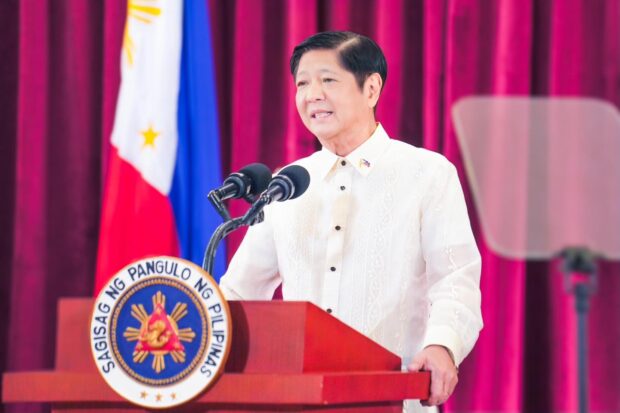
President Ferdinand Marcos Jr. | PHOTO: PCO Official facebook page
MANILA, Philippines — Lawmakers weighed in on President Ferdinand “Bongbong” Marcos Jr.’s proclamation of amnesty against Maoist and Islamic rebels, with some welcoming it while others cast doubt on its effectiveness.
Marcos, through Proclamations 403 to 406, granted amnesty to former members of the New People’s Army, Rebolusyonaryong Partido ng Manggagawa ng Pilipinas/Revolutionary Proletarian Army/Alex Boncayao Brigade, Moro Islamic Liberation Front and Moro National Liberation Front.
For Senator Grace Poe, the amnesty grant “strikes a powerful chord with the Filipinos who shun violence and conflict.”
“Rebel groups waging armed struggle out of their political conviction will no longer feel the sword hanging over their heads that they could be arrested or charged any time,” Poe said in a statement.
Poe also expressed hope that the amnesty program will provide a comprehensive package for the rebels like livelihood and employment opportunities.
“This will fully reintegrate the rebels into the mainstream society as peaceful, productive and law-abiding citizens,” she said.
On the other hand, the amnesty declaration received a lukewarm response from the Makabayan bloc in the House of Representatives.
Gabriela Rep. Arlene Brosas called the amnesty declaration “ironic” in view of what she deemed to be the militarization of communities in the country.
READ: Bongbong Marcos granted amnesty to rebel returnees, insurgents – EO
“If the president wants peace, the state-perpetrated human rights violations should be stopped, and the political prisoners should be freed…” Brosas said in Filipino.
Brosas’ remarks were echoed by Kabataan Rep. Raoul Manuel, saying that political prisoners should be freed “unconditionally” if the government is “sincere” with the peace efforts.
Manuel also stressed the amnesty is “not a sustainable and long term solution to address the roots of armed conflict in the country.”